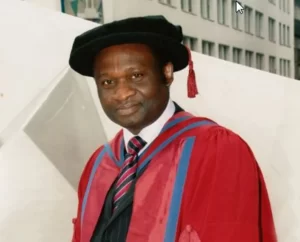Table of Contents
Olu Fasan Speaks on the ongoing Okuama Killings: The continuous attacks on soldiers and policemen by civilian groups in Nigeria indicate a state of disorder.


When soldiers and policemen, who represent state authority, are frequently targeted by civilians, it suggests a rebellion against the state and a lack of control over organized violence.

Join our Telegram Channel for Updates
If not addressed, this situation could worsen and lead to a full-scale conflict, which would be disastrous.
The recent killing of 17 soldiers, including four officers, in Okuama, Delta State, and six policemen in the same state, is deeply troubling, and my condolences go out to their families. However, it’s important to understand why such incidents occur in Nigeria.
Military-civilian relations are strained to the point where civilians often ambush and kill soldiers, something that is rare in countries where the military is highly respected.
In the US and the UK, for example, there is widespread public support for the military, with numerous charities dedicated to supporting soldiers, veterans, and their families. However, this level of support is lacking in Nigeria.
To address the deteriorating military-civilian relations, we need to examine the underlying causes. There are three main factors contributing to this issue.
Firstly, Nigeria lacks a strong sense of national identity, leading to a disconnect between the central government and various ethnic groups. Secondly, Nigeria is a fragile state, unable to effectively address security threats posed by non-state actors. Thirdly, the military and police have failed to earn the trust and respect of the Nigerian people, often being seen as oppressive agents of the state.
To overcome these challenges, Nigeria needs to foster a sense of nationhood, decentralize power to regional governments, strengthen state institutions, and reform the security forces to prioritize civilian protection and build trust with the populace.
Without addressing these underlying issues, the conflict between civilians and security forces is likely to persist, posing a significant threat to Nigeria’s stability and security.









